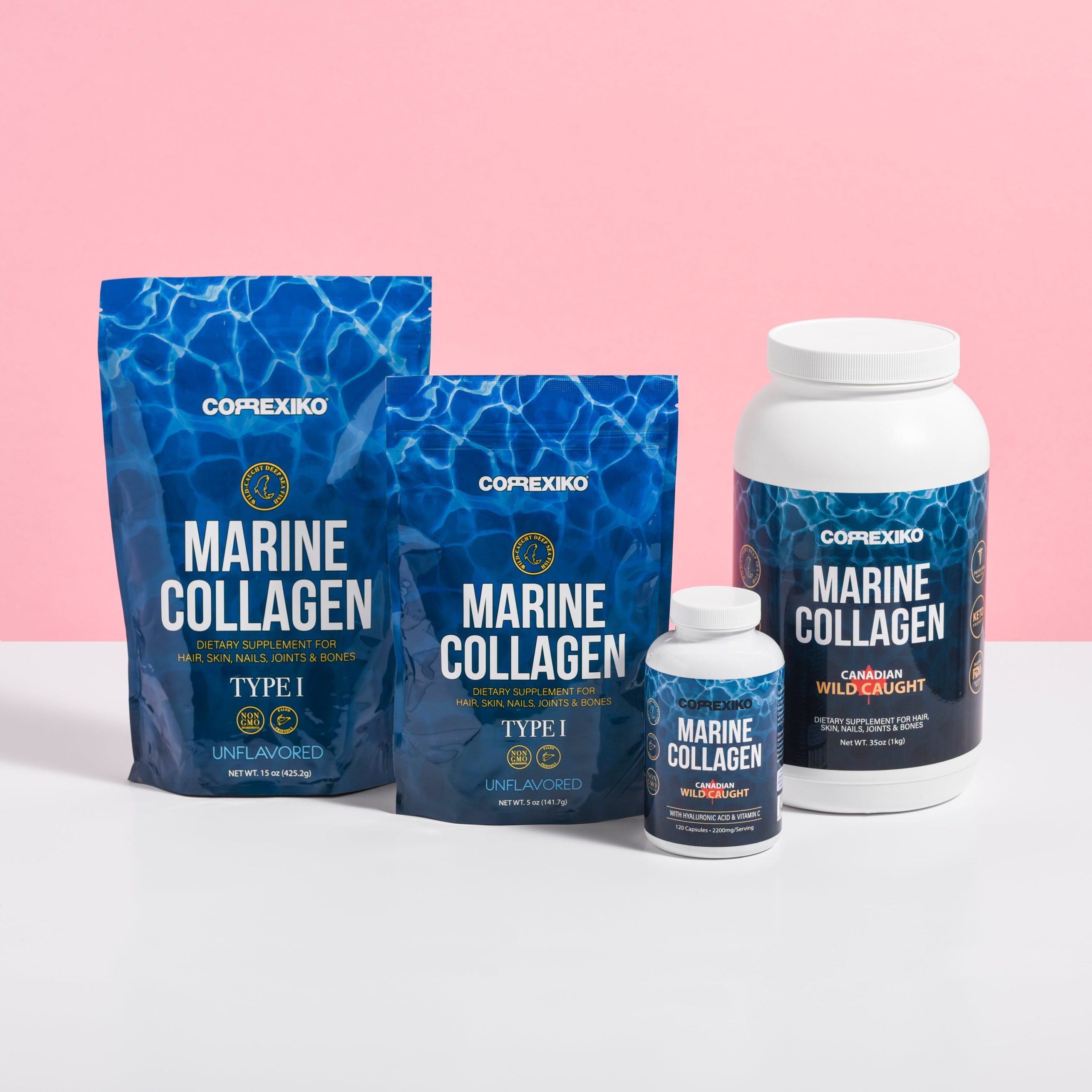In the pursuit of youthful skin, collagen supplements have gained popularity as a promising addition to skincare regimens. Collagen, a protein abundant in the body, plays a crucial role in maintaining skin elasticity and firmness.
As we age, collagen production naturally declines, leading to wrinkles and sagging skin. This has prompted many individuals to turn to the best collagen supplements.
So, does collagen supplement give you healthy skin? In this article, we delve into the science behind collagen, the potential benefits of supplementation, and key considerations to separate fact from fiction.
The Science Behind Collagen
Collagen is the most abundant protein in the human body, comprising a significant portion of the skin, hair, and connective tissues. It provides structural support, elasticity, and strength to these tissues. However, as we age, collagen production decreases, resulting in visible signs of aging such as fine lines and wrinkles.
Collagen supplements are derived from animal sources, such as bovine or marine collagen, and are available in various forms, including powders, capsules, and drinks.
The idea behind collagen supplementation is to replenish the body’s collagen stores, potentially promoting healthier, more youthful skin.
Potential Benefits of Collagen Supplements for Skin
1. Improved Skin Elasticity
Collagen is essential for maintaining skin elasticity. Some studies suggest that collagen supplementation may enhance skin hydration and elasticity, leading to a smoother and more youthful appearance. Regular intake of collagen supplements may contribute to reducing the appearance of fine lines and wrinkles.
2. Support for Wound Healing
Collagen is involved in the body’s natural wound-healing process. While more research is needed, some studies propose that collagen supplements may aid in wound healing and skin regeneration, potentially promoting a faster recovery from skin injuries.
3. Hydration Boost
Collagen is a key component in the skin’s moisture retention. By bolstering collagen levels, supplements may contribute to improved skin hydration, combating dryness and promoting a supple complexion.
4. Protection Against UV Damage
Preliminary research suggests that collagen supplementation may offer some protection against UV-induced skin damage. Collagen’s antioxidant properties may help neutralize free radicals, reducing the risk of premature aging caused by sun exposure.
Considerations and Potential Pitfalls
While collagen supplements hold promise for enhancing skin health, it’s essential to approach them with a critical eye. Not everyone may experience the same benefits, and there are potential pitfalls to consider.
1. Effectiveness Varies
Individual responses to collagen supplements can vary. Factors such as age, genetics, and overall health may influence the degree to which collagen supplementation positively impacts skin health. It’s crucial to manage expectations and understand that results may differ from person to person.
2. Quality Matters
The effectiveness of collagen supplements is heavily dependent on their quality. Opt for reputable brands that use high-quality sources of collagen, ensuring purity and effectiveness. Low-quality supplements may not deliver the desired results and could even pose health risks.
3. Digestibility and Allergies
Some individuals may experience digestive issues, such as bloating or discomfort, when taking collagen supplements. Additionally, those with allergies to specific sources of collagen, such as bovine or marine, should exercise caution and choose alternative sources.
4. Dietary Considerations
Collagen supplements are not a one-size-fits-all solution. It’s crucial to consider dietary preferences and restrictions, especially for individuals following vegetarian or vegan lifestyles. In such cases, plant-based alternatives like soy or pea protein may offer viable options.
Conclusion
Collagen supplements have come outd as a popular avenue for individuals seeking healthier, more youthful skin. While there is promising research supporting the potential benefits of collagen supplementation, it’s essential to approach these products with a nuanced understanding. Consider factors such as individual variation, product quality, potential side effects, and dietary preferences when incorporating collagen supplements into your skincare routine.
FAQs
Q1: Can collagen supplements replace a good skincare routine?
While collagen supplements may offer benefits, they are not a substitute for a comprehensive skincare routine. A balanced regimen that includes cleansing, moisturizing, and sun protection is essential for overall skin health.
Q2: How long does it take to see results from collagen supplements?
Results vary among individuals, and it may take several weeks to months to notice changes in skin appearance. Consistency in supplementation and overall skincare practices is key.
Q3: Are there any side effects associated with collagen supplements?
Some individuals may experience mild digestive issues, such as bloating. It’s advisable to start with a lower dosage and monitor for any adverse reactions. If concerns persist, consult with a healthcare professional.



